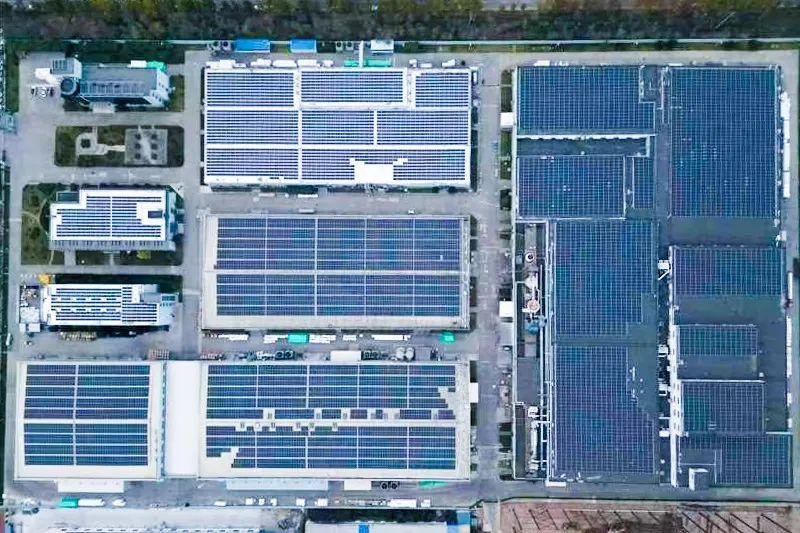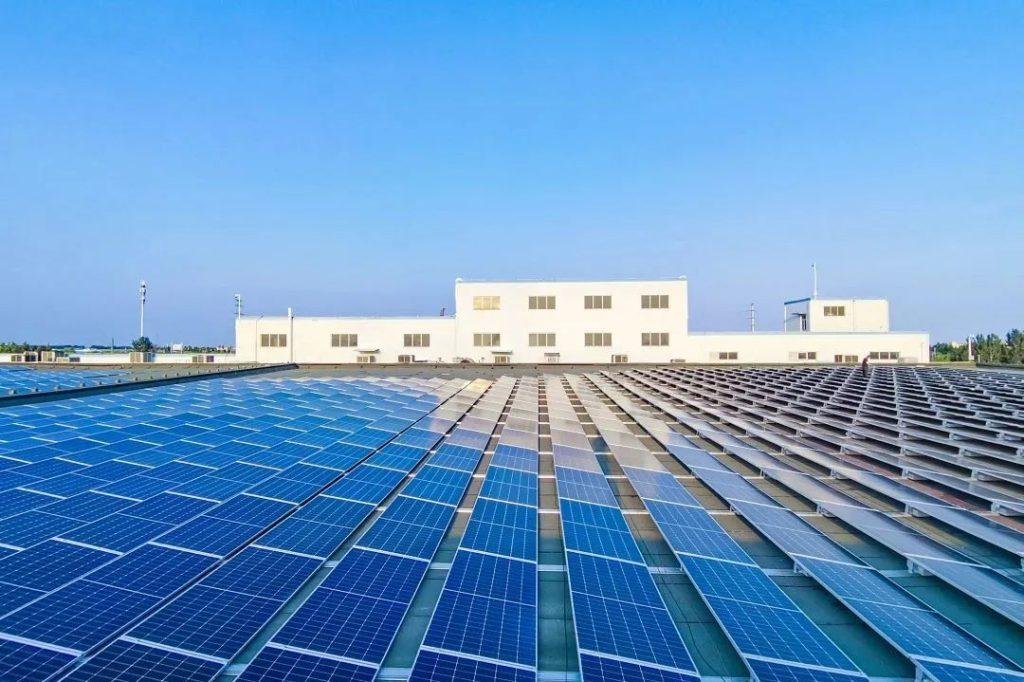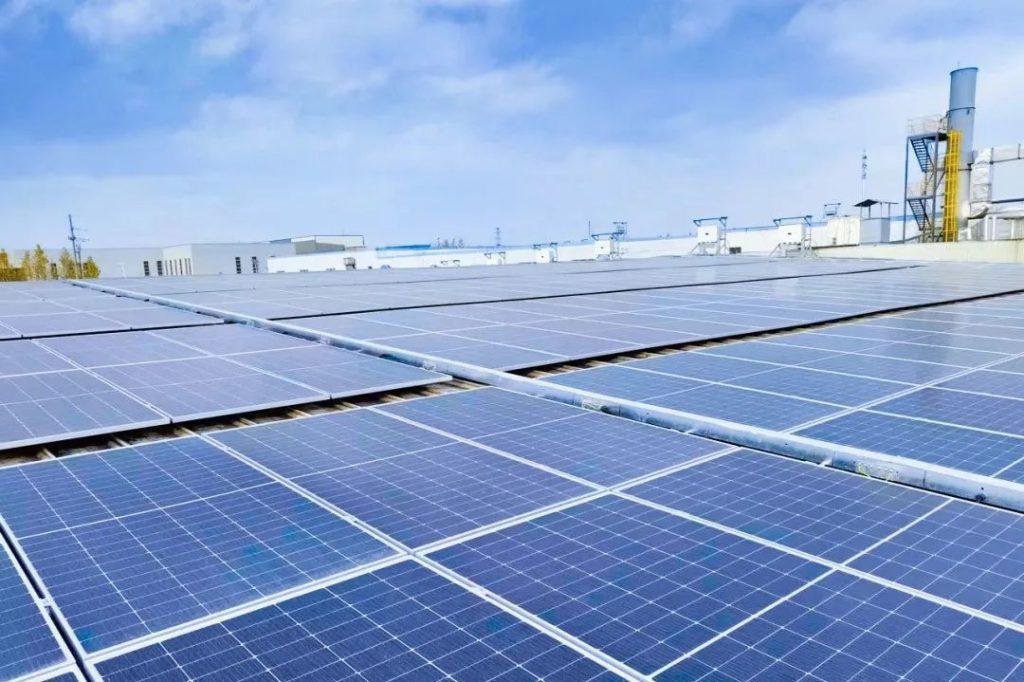
Qingdao Rizhao has successfully connected its 5.75MW rooftop photovoltaic power station to the State Grid, which is an important step towards adopting sustainable energy. This project marks an important milestone in the company’s renewable energy efforts and contributes to China’s broader strategy of increasing clean energy capacity. As part of the ongoing efforts to promote environmental sustainability and a greener future, this rooftop solar power station aims to utilize solar energy to meet local energy needs and contribute to the national grid, significantly reducing carbon emissions in the region.
Overview of Qingdao Rizhao Solar Energy Project
The project is located at Rizhirong Plastic Products Co., Ltd. in Laixi City, Qingdao. The roof of the park is made of cement flat roof and color steel tile roof. The total installed capacity of the project is 5.75MW, and it is expected to produce a large amount of renewable energy to supply power to nearby industries and households, as well as provide excess electricity to the power grid.
This project is a key component of China’s rapidly expanding solar energy industry, which is crucial for achieving China’s ambitious carbon neutrality goals by 2060. The successful integration of this distributed energy system demonstrates the potential of rooftop solar installations to make meaningful contributions to energy production and climate goals.
Technical specifications for solar energy projects
The 5.75MW rooftop solar power station adopts high-efficiency solar panels and the most advanced inverters. These components are designed to maximize energy production while ensuring the long-term reliability and performance of the system. The integration of high-quality photovoltaic panels and advanced string inverters ensures optimal conversion of sunlight to electrical energy, enabling the system to generate electricity even under less than ideal conditions.
The key details of this project include:
The project is expected to generate approximately 7 million kilowatt hours of clean energy annually, equivalent to reducing approximately 5000 tons of carbon dioxide emissions annually.
This system will become a model for future rooftop photovoltaic projects, demonstrating the feasibility of using urban rooftops for large-scale solar power generation.

Integration with State Grid
The successful grid connection of Qingdao Rizhao Solar Power Station is a major achievement of the project team. After extensive testing and certification, the system has officially integrated with the State Grid, achieving efficient power distribution. This not only enables the project to meet local energy demand, but also helps stabilize the power grid, especially during peak demand periods.
By connecting to the power grid, this project helps to diversify the energy structure and improve the reliability of power supply, especially as the world moves towards more sustainable and resilient energy infrastructure. In addition, the integration supports the implementation of energy storage solutions and demand response plans to optimize energy use.
Economic and environmental impacts
The environmental benefits of the 5.75MW rooftop photovoltaic project are significant. This system is expected to offset the significant carbon dioxide emissions generated by traditional fossil fuel power plants. This is consistent with China’s long-term climate strategy, which aims to reduce carbon emissions and reliance on coal-fired power generation.
In terms of economy, the project offers various benefits:
Economically efficient energy production: By generating electricity locally, this project reduces the demand for expensive and inefficient energy imports. It also reduces energy costs for businesses and local communities.
Creating employment opportunities: This project has created employment opportunities during both the construction and operation phases. From the installation of solar panels to the continuous maintenance of the system, this measure supports the local job market.
Energy independence: By utilizing local solar energy resources, Qingdao can improve energy security and reduce dependence on non renewable energy.
The role of renewable energy in Qingdao’s green transformation
Qingdao is located in Shandong Province and has always been at the forefront of China’s renewable energy development. With a firm commitment to green energy, the city has become a leader in incorporating solar and wind energy into its energy structure. The 5.75MW rooftop solar project demonstrates the city’s commitment to sustainable development and its willingness to adopt innovative energy solutions.

The success of this project is part of a broader trend in China, where distributed energy systems are increasingly being utilized to meet the growing demand for electricity while reducing carbon footprint. Such projects directly contribute to achieving China’s energy transition goals, including the broader goal of achieving carbon neutrality by 2060.






